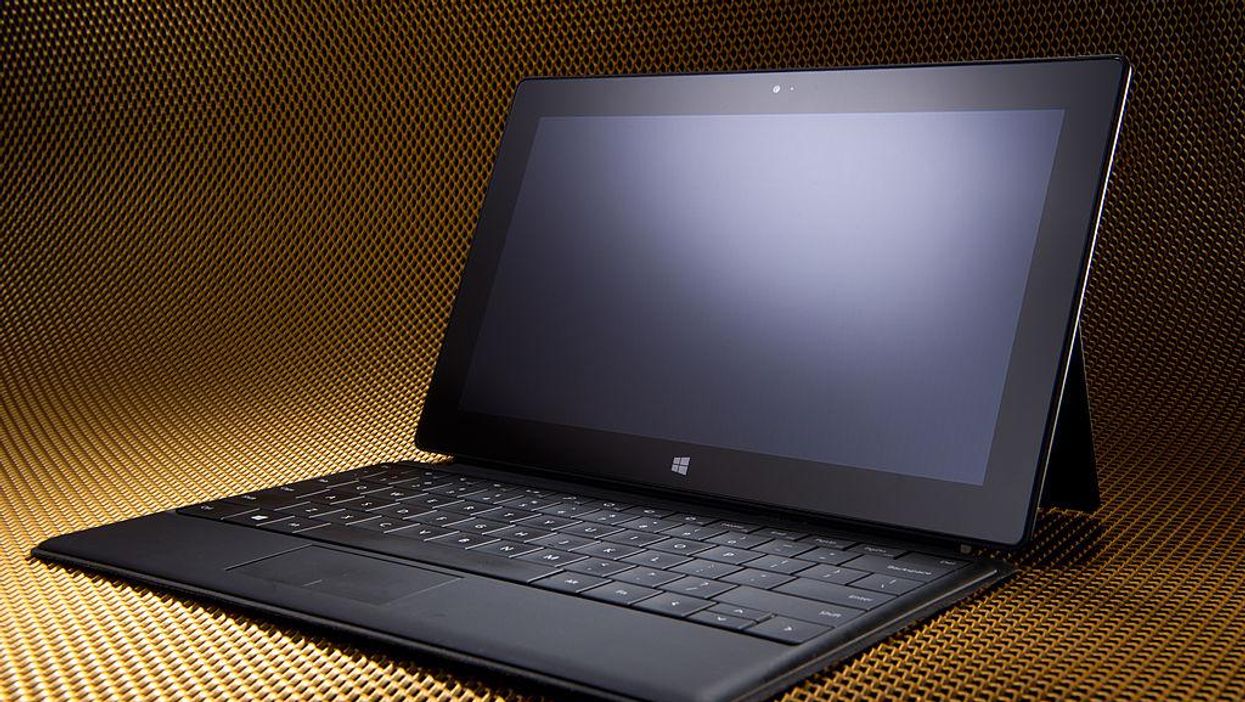
David Caudery/Official Windows Magazine via Getty Images

A federal judge ordered a man accused of participating in the Jan. 6 riot at the U.S. Capitol to unlock his laptop "with his face" after prosecutors said the laptop likely contains video footage from his helmet-worn camera that would incriminate him.
Defendant Guy Reffitt was arrested in January and charged with five federal crimes, including bringing a handgun to the Capitol grounds during the riot and obstructing justice by allegedly threatening his family, saying he would kill them if they turned him in. He has plead not guilty to all charges.
FBI investigators seized his Microsoft Surface Pro laptop and other technological devices after obtaining a search warrant earlier this year, CNN reported. The laptop was password-protected, but the investigators said it could be unlocked with facial recognition technology. Prosecutors believed the laptop contained more than six gigabytes of footage from Reffitt's helmet-worn camera, which would show that he had participated in the riot and trespassed on the U.S. Capitol grounds.
Attorneys for the defense had argued in court filings that Reffitt couldn't remember his password and that the search warrant for the laptop had expired.
Prosecutors had asked the judge to compel Reffitt to sit in front of the computer's camera and unlock it with his face. Judge Dabney Friedrich sided with their arguments, agreeing that forcing the defendant to unlock the laptop did not violate his Fifth Amendment right to be protected from self-incrimination.
The Fifth Amendment grants anyone in the U.S. the right to remain silent if they are charged with committing a crime, a protection for an innocent person "who otherwise might be ensnared by ambiguous circumstances." Courts have previously ruled that a defendant cannot be compelled to turn over computer passwords. Passwords are considered "testimonial" evidence, which a defendant can refuse to provide to law enforcement because doing so would mean answering a question based on the contents of their thoughts.
However, the prosecution successfully argued that those protections do not extend to a person's physical features, like their face or fingerprints, which can be used in place of password protection and are considered physical pieces of evidence. According to TechCrunch, the FBI also argued in its indictment that ordering Reffitt to sit in front of his computer and unlock it with his face "would not run afoul of the defendant's Fifth Amendment right against self-incrimination."
Several court rulings support this argument. In 2014, a Virginia judge said police could compel a defendant to provide his fingerprint to unlock a cellphone that may have contained incriminating evidence because a fingerprint, like giving DNA or a handwriting sample, is physical evidence. Similar cases were decided in 2016 and again in 2017.
"The self-incrimination analysis for biometric and face scanning would be the same as for Touch ID," Jeffrey Welty, a UNC-Chapel Hill law professor, said in a 2017 interview with The Verge.
"Standing there while a law enforcement officer holds a phone up to your face or your eye is not a 'testimonial' act, because it doesn't require the suspect to provide any information that is inside his or her mind."